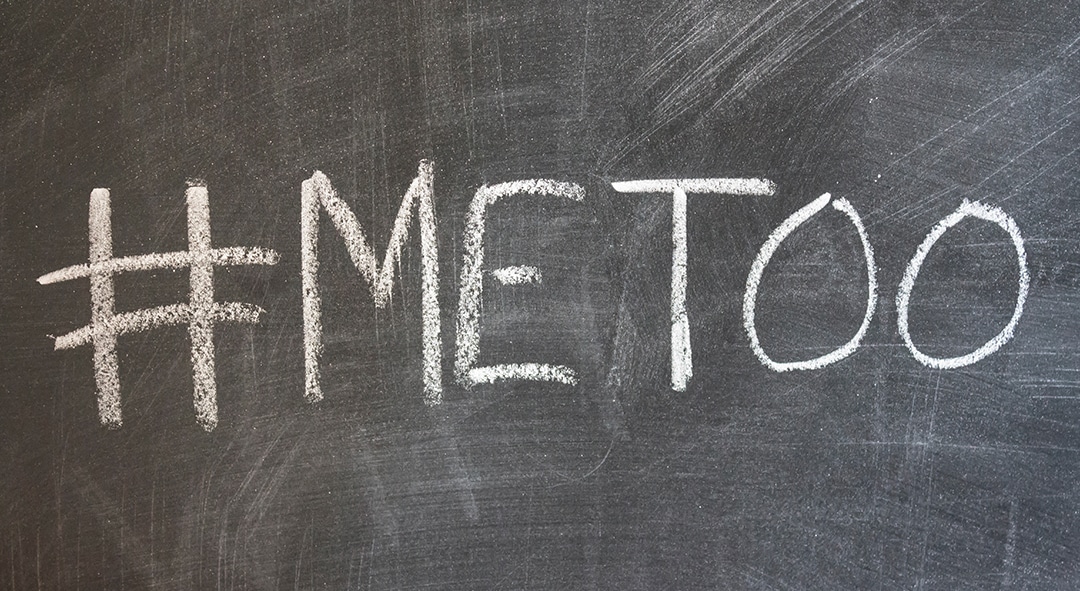Request Consultation
Call 310-209-4100 now or fill out the form
above to schedule your consultation.
Los Angeles Sexual Assault and Rape Attorneys
Knowledgeable representation for sexual assault victims across Southern California
Sexual assault and rape are particularly heinous offenses that leave victims feeling traumatized and helpless. Victims of sexual assault and rape are not only severely impacted in the short term, but commonly suffer psychological and emotional effects for years after the fact. At the law firm of Taylor & Ring, we have substantial experience representing victims through civil litigation. Contact us for more information.
Request Consultation
Quick Questions:
- What types of sexual assault cases does your firm handle?
- What is sexual assault?
- What to do if you are a victim of sexual assault
- What is the value of my sexual assault case?
- What is the statute of limitations on a sexual assault case in California?
- Choosing the right law firm for your needs
- Do you have a sexual assault attorney near me?

What types of sexual assault cases does your firm handle?
Taylor & Ring handles some of the most complex, high-profile cases of sexual assault and misconduct in the state of California. We represented Evgeniya Chernyshova, also known as “Jane Doe 1” in her case against Harvey Weinstein – the only case of the four in California which led to a conviction against him. Contact us for help with cases involving:
- Rape
- Date Rape
- Sex Trafficking
- The Entertainment Industry
- Celebrity Sexual Assault
- Inadequate Security
- Sexual Abuse in a Relationship
- Doctors and the Medical Profession Sexual Abuse
No matter who assaulted you or where it happened, we have the resources to help.
What is sexual assault?
Sexual assault is a broad term. As such, the state of California does not have only one sexual assault designation: it can include rape, threats, sodomy, seduction, and much, much more. In the most general of terms, sexual assault is any act of unwanted sexual contact without a person’s consent, including any threats or coercion.
What is rape?
Rape is defined as an act of sexual intercourse – with a spouse, intimate partner, acquaintance, or stranger – without consent:
- Because you were threatened
- Because you were forced against your will
- Because you were physically unable to grant consent, from being asleep, unconscious, unaware, or disabled
- Because you were mentally unable to give consent due to a disability
- Because you were under the age of 17
- Because you were under the age of 18, and the perpetrator was aged 18 or older
$6.15 Million Settlement - Sexual Assault
Taylor & Ring represented a woman who was raped by a Los Angeles County sheriff’s deputy during a traffic stop in 2010. This was the largest sexual assault recovery against a police agency in California. Read more here.

From the beginning, I knew I was in compassionate hands with Taylor and Ring. I was represented by Mr. Ring, and as a sexual abuse survivor, I felt that he went above and beyond a typical trial lawyer's obligations. Mr. Ring demonstrated such kindness and professionalism throughout my litigation experience that a process which can often feel worse than the abuse felt humane and empowering. I am forever grateful to have had Taylor and Ring's representation during a time when I felt completely alone. They are the best of the best!
There were 13,723 reported rapes in California in 2023; down from 14,346 in 2022.
What is the difference between sexual harassment and sexual assault?
While sexual harassment broadly refers to verbal and physical sexual attention that is unwanted by the victim, sexual assault is actual contact or behavior of a sexual nature without the victim’s consent. Either one of these acts makes the subject of the attention or contact feel violated. Another difference is that sexual assault is charged as a crime, whereas sexual harassment is typically handled as a civil matter. By filing a civil lawsuit, you have more flexibility in shaping the type of outcome your case will have, which could include a financial settlement or award.

What is sexual misconduct?
Sexual misconduct is yet another term used to describe a wide array of sexually offensive behaviors that can include harassment or even date rape. Other acts that fall under the purview of this category include:
- Domestic and intimate partner violence
- Dating violence
- Sexual exploitation
- Stalking
- Stealthing
What should I do if I am sexually assaulted or raped?
First and foremost, get yourself to safety if you have been sexually assaulted or raped. Once you are out of danger, some important steps to take are:
- Seek medical help. Ensure your health is safeguarded and document the attack. Many medical centers have nursing staff trained in sexual trauma and evidence collection. You may not be in the best frame of mind to make a decision as to whether you want to press charges immediately after being sexually assaulted but once the evidence is gone, it makes it more difficult to pursue a case against your attacker when you do have that moment of clarity and want justice.
- Report the attack. Finding your voice in a crisis can be tough to do when you feel violated. You did nothing wrong, yet you experience many emotions, including feeling as if you’re to blame because you took a different route home, or you’re embarrassed because you shared a kiss with your aggressor. You may not be at the point of filing a police report but you need to speak with someone about what happened to you, even if it’s anonymously to the National Sexual Assault Hotline. Know that signing an NDA does mean you cannot report an act of sexual assault; non-disclosure agreements do not apply to criminal actions.
- Save evidence. Even if you don’t immediately report your assault or seek medical attention, preserving the items of clothing you wore during the attack and anything else that could contain valuable evidence should be saved until you choose to make an official report.
- Find an attorney. When you’re ready, contact Taylor & Ring to help you try to hold your attacker responsible. While helpful, you are not required to file a police report to pursue a civil lawsuit for sexual assault. Our attorneys are experienced with handling cases where victims come into the process feeling hopeless only to learn that they may be able to succeed in a claim.
There’s only a few firms in California that specialize in handling sexual misconduct cases. With the really unique cases, you’ve got to be very careful how you handle them, because these victims, they require a lot of support during the litigation. If you’re the type of firm that you talk to your client once every few months, you’re doing them a disservice. It’s so personal to them, it’s so anxiety-ridden, and it’s not a car accident. It’s horrific stuff. With those cases there’s a lot more client interaction throughout the entire case, because that’s super important.
Dave Ring, “Giving Voice to the Silenced: Anatomy of a Sexual Abuse Practice at Taylor & Ring"
What is the value of my sexual assault case?
There are two different justice systems in this country: criminal and civil. In the criminal justice system, the prosecutor decides whether or not to charge a person (the defendant) with a sex crime. If the defendant is found guilty, he or she may be incarcerated and fined. The civil justice system is what allows survivors to bring cases for monetary damages against the defendant.
While a guilty plea or verdict can bolster your case, it is not necessary. In fact, even if your attacker is found not guilty in criminal court, he or she may still be held liable for your injuries, and ordered to compensate you for:
- Your medical expenses
- Your lost wages or loss of future earning potential
- Your pain and suffering
- Your loss of companionship with your partner
Taylor & Ring helped to secure a combined $102.5 million award for two women who were sexually assaulted while attending Dartmouth Middle School, and has obtained multiple seven- and eight-figure awards for other survivors.
What is the statute of limitations on a sexual assault case in California?
We understand that choosing to tell your story is a deeply personal decision. We also understand that for some people, coming forward can feel like a violation in and of itself. Even if you are not ready to initiate a lawsuit, it is important to preserve your rights before the statute of limitations expires. Under California law, there is no statute of limitations for criminal charges. However, failing to meet statutory time limitations can keep you from pursuing the compensation you deserve in a civil case.
As of January 2020, if you are a survivor of childhood sexual abuse, you must file a case by or before you are 40 years old (certain exemptions apply).
How can your Los Angeles law firm help with my case?
The lawyers of Taylor & Ring have handled numerous high-profile and precedent-setting cases throughout California. Our victories include a wide spectrum of verdicts and settlements for sexual assault victims. Beyond exposing the perpetrators, our Los Angeles sexual assault law firm focuses on holding property owners, employers and others for failing to protect victims. We seek restitution for physical injuries, emotional trauma, and psychological effects, all of which may have a tangible financial impact. We find every way possible to get you the justice and compensation you deserve.
Do you have a sexual assault attorney near me?
Yes. Taylor & Ring is located at 12424 Wilshire Boulevard, Ninth Floor, Los Angeles, CA 90025. We also have offices in Manhattan Beach at 1230 Rosecrans Avenue, Suite 360. We can arrange teleconferences or videoconferences if you are unable to meet us at our offices. We look forward to speaking with you.
Let an experienced Los Angeles sexual assault law firm handle the details of your case
You can trust the attorneys of Taylor & Ring to provide you and your loved one with civil justice representation that is honest, reliable, and aggressive. Call us today at 310-209-4100 or complete our contact form to schedule a confidential and free initial consultation. We value each of our clients and continuously strive to provide them with high-quality representation.
Se habla español.



